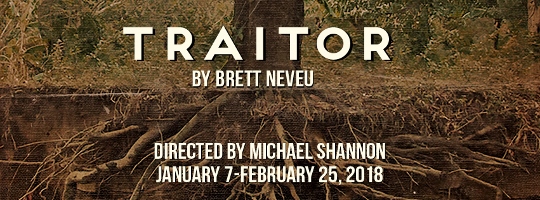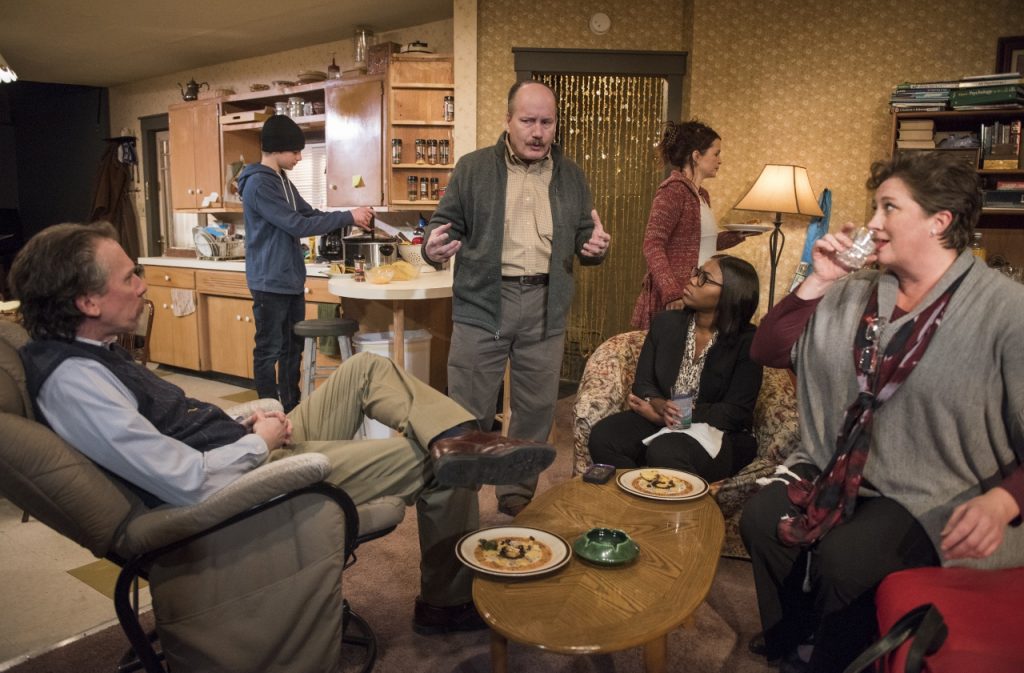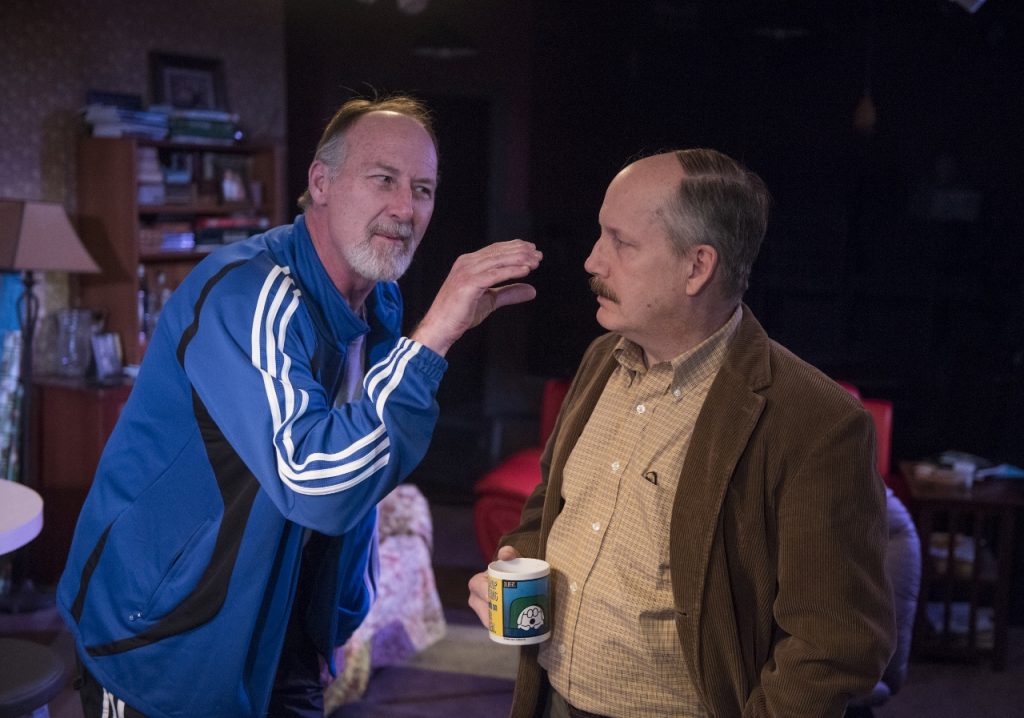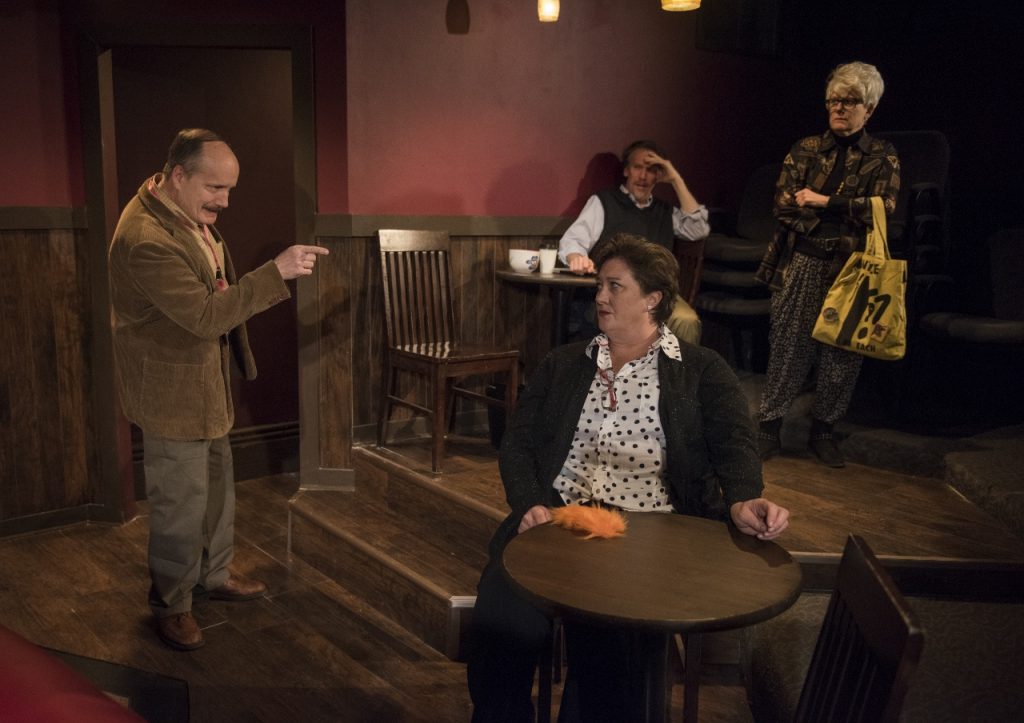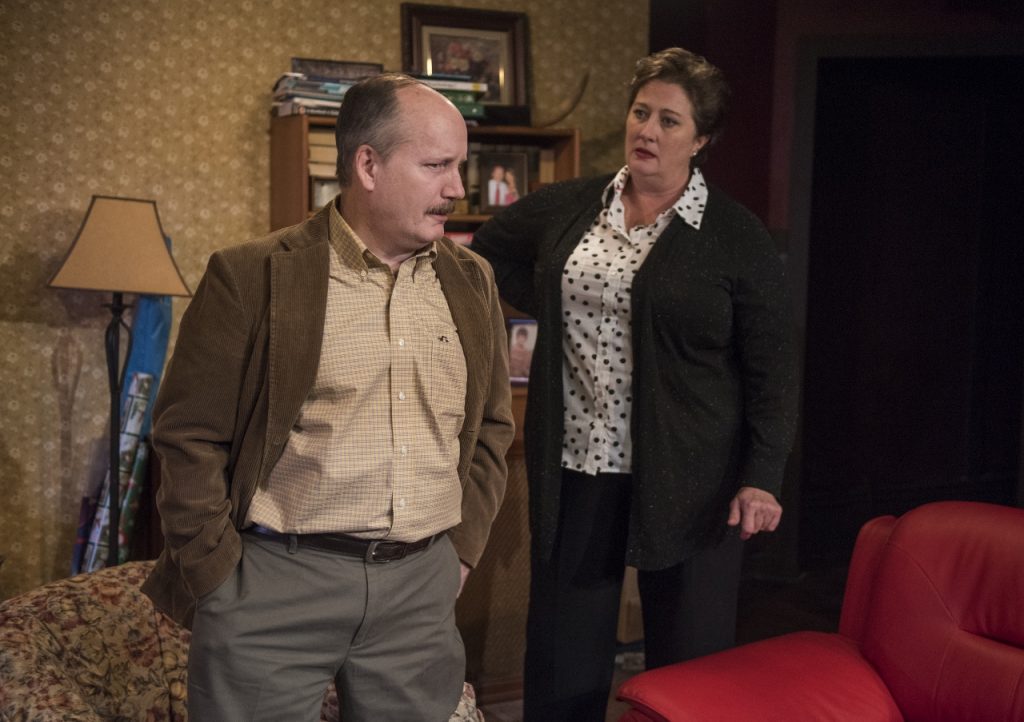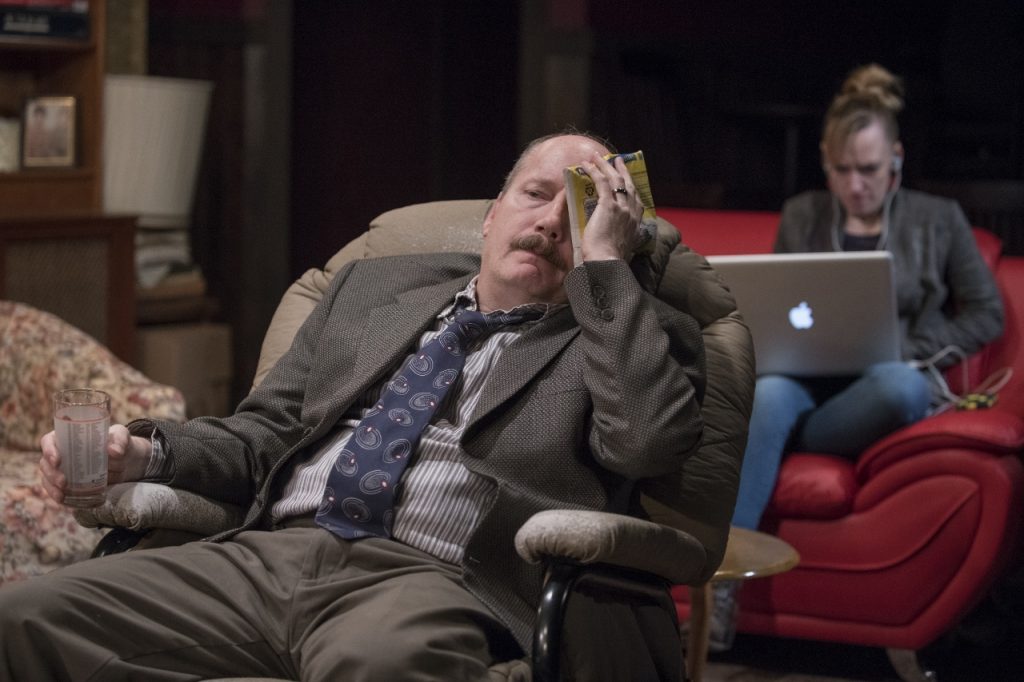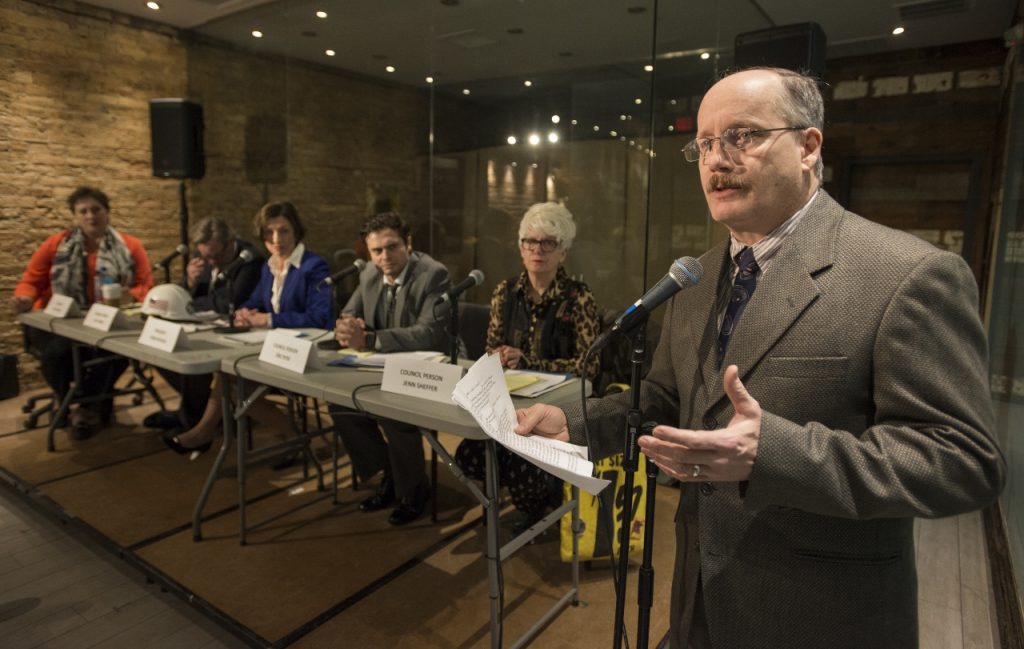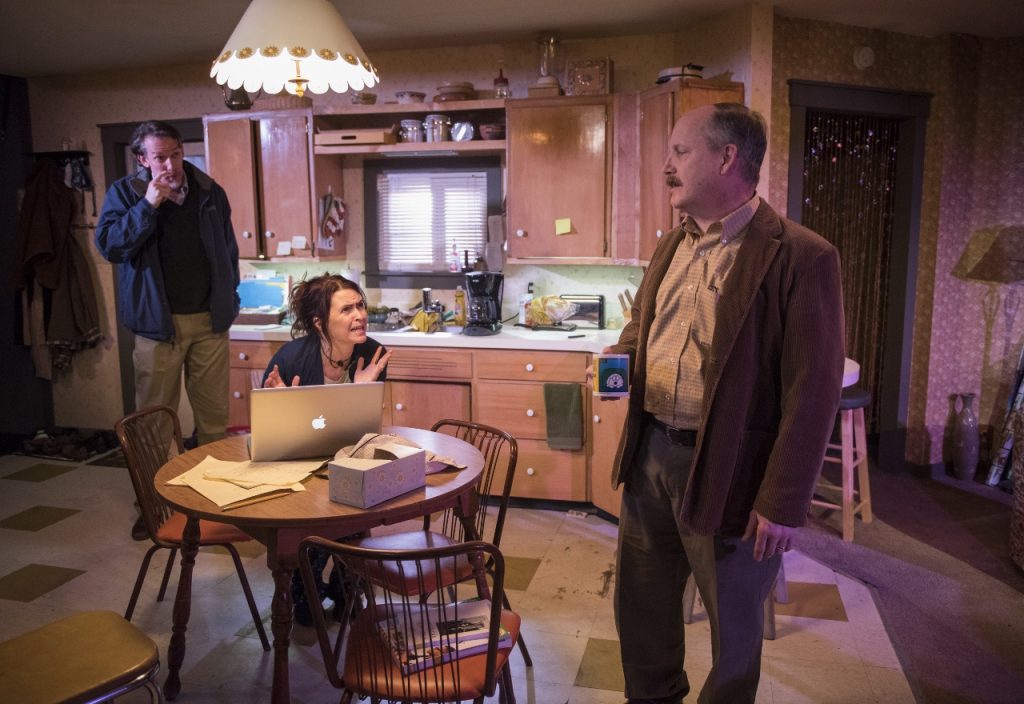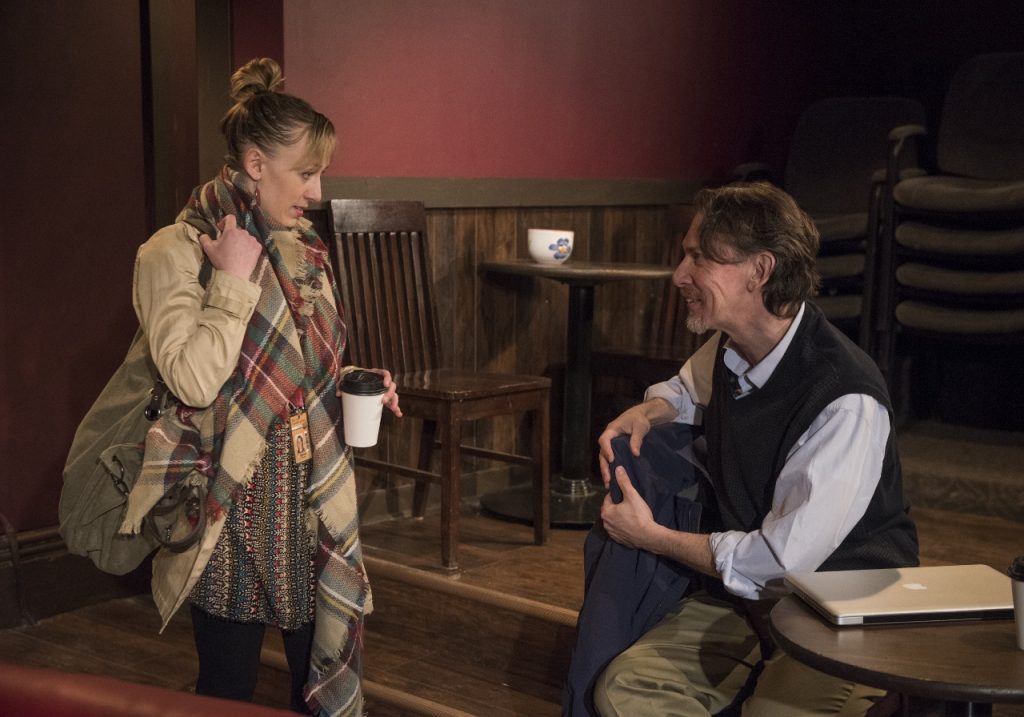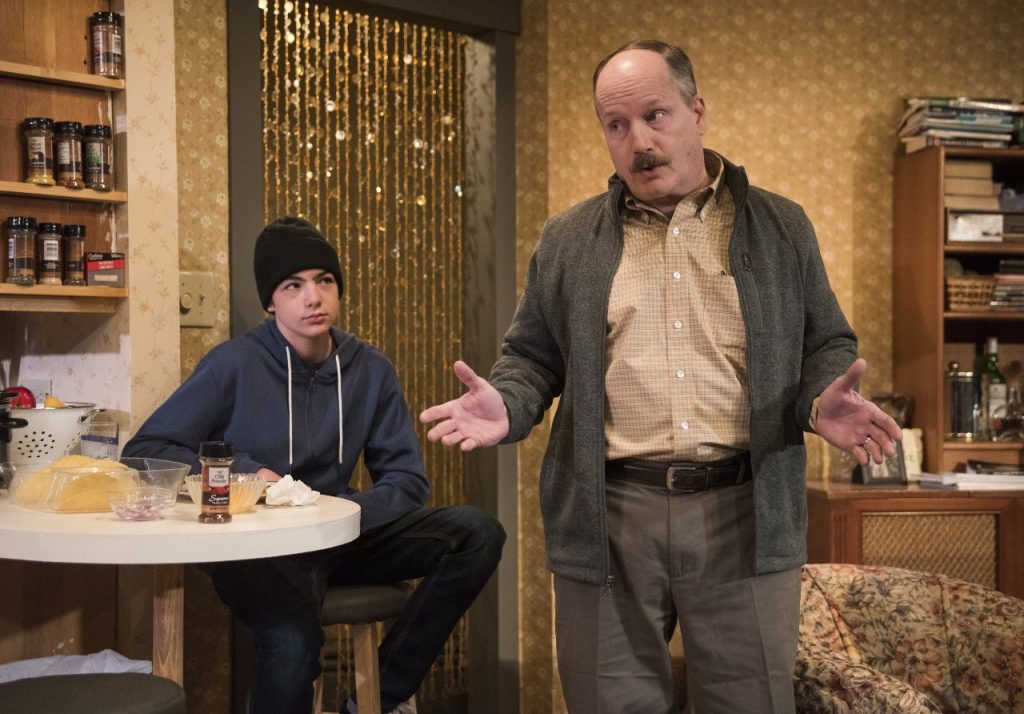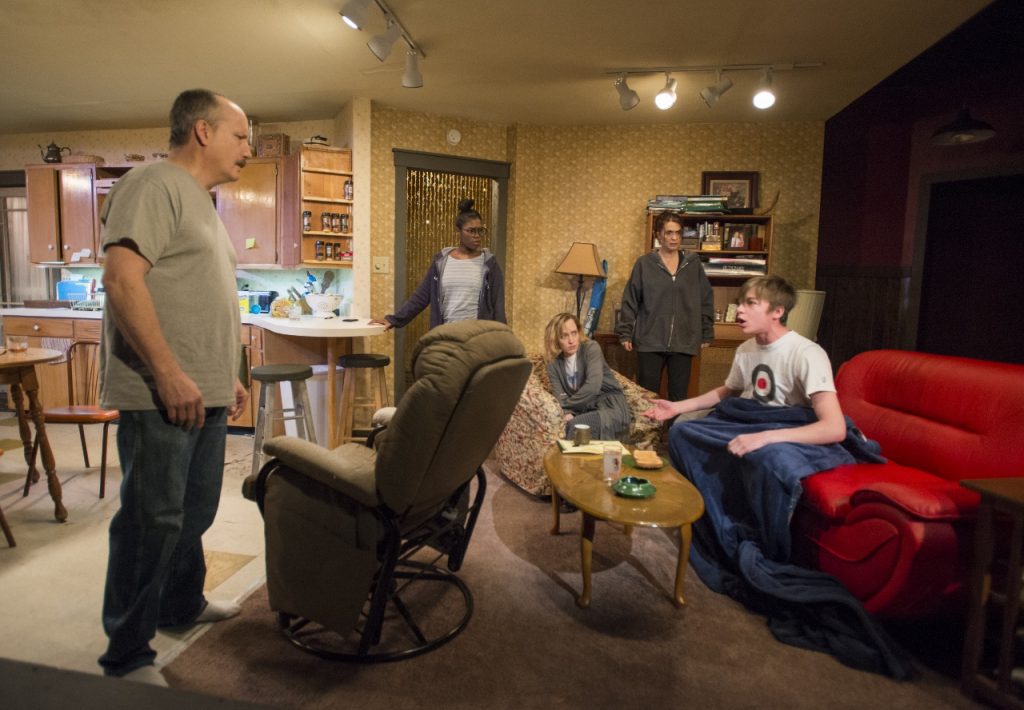GET THE LEAD OUT
“The majority is always wrong.” Norwegian disrupter Henrik Ibsen practically carved that credo into his 1882 potboiler An Enemy of the People. In his still-seminal protest play, Ibsen lambastes the captious critics of his earlier sensation, Ghosts: He forges a plot in which Dr. Peter Stockman, a village doctor, discovers that the mineral springs that are the main income of his now-prosperous spa are poisonous. Far from getting better, people seeking cures in this mountain resort end up worse. Expecting praise for telling the truth and saving lives, Stockman and his embattled family are pilloried as pariahs, shamed with libelous accusations, and silenced with censure. Deserted by his brother the mayor and a previously sympathetic newspaper publisher, this “enemy of the people” is martyred for threatening the town’s economy. Never mind that it’s built on a lie.
136 years later, Enemy is still an incendiary drama — and an ambiguous manifesto; Ibsen refused to make it a polemically black-and-white, cut-and-dried, modern morality play. The writer of Hedda Gabler and A Doll’s House shows how, disastrously serving his increasingly isolated cause, his rebel hero is tainted by his own elitism and paranoia.
In A Red Orchid Theatre’s Traitor, a world-premiere adaptation by established playwright Brett Neveu, Michael Shannon, the troupe’s most distinguished ensemble member, inspires a committed cast of twelve. The complex result is a fiercely respectful updating of Ibsen’s firebrand provocation. The main ingredients remain: invincible egos clashing with righteous ardor; a mob mentality enraged by tabloid accusations; and the damaged souls caught in the crossfire as collateral damage. The final wrenching stage picture, which imitates the end of Ghosts, depicts an endangered innocent succumbing to the sins of his elders.
But heavy-handed with 21st-century melodrama, cluttered with unedifying exposition, and clumsily comic, Traitor doesn’t quite ignite in its own right. These 150 minutes, interestingly performed in two venues, are invigorating, entertaining and constantly combustible. But Neveu’s agitation sheds too little light on our 2018 circus of fake news, alternative facts, and moral bankruptcy, a quagmire that deserves, even demands, a second coming of Ibsen’s ire.
One problem is the premise: We’re to believe that the north Chicago suburb of East Lake, Illinois, a formerly dying burg, has been totally invigorated, economically and culturally, by a new charter school. It’s hard to swallow Neveu’s switcheroo substitution: A secondary-educational institution can’t be a money-maker like Ibsen’s rest-cure destination. But, yes, investors, it seems, have been attracted to what is purportedly East Lake’s sole hope for rising property values and a financial future.
So all heck breaks loose when Dr. Tom Stock (Guy Van Swearingen), the school’s science head, discovers through an amateur investigation that this crucial charter school was built on contaminated soil, infected by lead introduced into its river by Tom’s polluter father-in-law (Frank Nall), an industrial tycoon. (Think Flint, Michigan.) The town can’t afford to close the school for a two-year environmental makeover, let alone broadcast its ecological errors in the first place.
In short order Tom’s sister Patty (a ferocious Kirsten Fitzgerald), the town’s glad-handing mayor, threatens to smear and savage the, well, tomfoolery of her temperamental sibling and his hysterical “hyperbole.” Loyal but beleaguered, Tom’s wife Karla (Dado), a part-time editor, is exasperated with hubby’s inflexible integrity. His daughter Molly (Missi Davis) must contend with a maladroit (and ultimately irrelevant) “come on” by Walter Hove (Larry Grimm), the malleably moral publisher of The Nonpareil, East Lake’s improbably named newspaper. Walter is assisted by Madison Bills (Kristin Ellis), an African-American reporter who thanklessly doubles as the town’s unwanted conscience. Initially irate at the possible poisoning of pupils, school-board member and small-business leader Jenn Sheffer (a dogged Natalie West) wavers when threatened with clean-up costs for this toxic site. (Strangely there’s no mention of involving the EPA in a “superfund” intervention.)
Slow to come to a boil, this overlong Traitor makes up for a too-casual opening with an explosive school council meeting in the second act. During the intermission the theater’s “overflow crowd” is moved to a vacant storefront space two doors north of A Red Orchid Theatre. Harsh words lead to flying fists in an ugly showdown — what the mogul calls a “two-headed dragon.”
Threatened with termination for violating the school’s non-disclosure agreement, an increasingly unhinged Dr. Stock accuses his adversaries of real-estate fraud: Worse, they’re genetically packed with “garbage in their souls.” Tom’s termagant sister flings slanders about the Stock family’s marijuana pipe. Parents who should be concerned for their children’s health turn into a lynch mob bent on persecuting an errant whistle-blower. Then we march back to the main stage.
Only in the stark last moment (after a confusing final scene) do we see what’s always been at stake and forgotten at our peril: The play’s final picture of a son’s seizure is non-negotiably horrific. But, oddly, it retroactively indicts, as much as exposes, the farcical quality of the petty-minded scenes that precede it.
No question, even as it sometimes trivializes Ibsen’s condemnation of the corrupt conformity of group thought, Traitor provides a template for our Trumpian dark doings. Shannon’s staging is as edgy and volatile as the dialogue and situations require. Perhaps today we’re more sensitive to the absurdity, rather than the anger, of Ibsen’s wrath. But, considering its title, Traitor should deliver a harder hate as it tries to get the lead out.
photos by Michael Brosilow
Traitor
An adaption of Ibsen’s An Enemy of the People
A Red Orchid Theatre, 1531 N. Wells Ave
Thurs–Sat at 8; Sat & Sun at 3
ends on February 25, 2018
for tickets, call 312.943.8722 or visit A Red Orchid
for more shows, visit Theatre in Chicago
